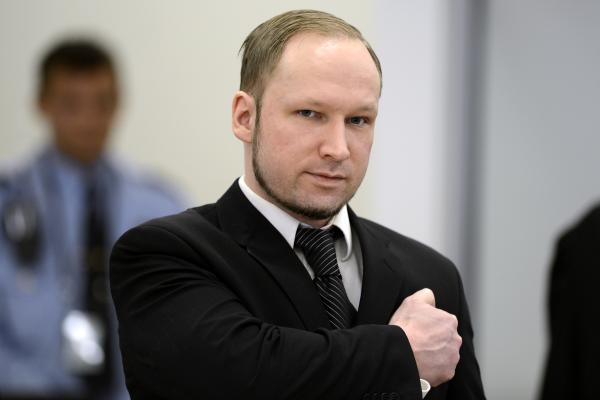I opened up the NY Times homepage yesterday to find this headline: On Witness Stand, Norwegian Says He Would Kill Again. Remember this guy? The Times says authorities have described Anders Behring Breivik as a “fundamentalist Christian…obsessed with what he saw as the threat of multiculturalism and Muslim immigration to the cultural and patriotic values of his country.”
He killed 77 people, including 68 teenagers, in Norway last summer.
Although Breivik admits to the murders, he doesn’t believe he should be held criminally accountable—he believes his actions were preventive measures, or, “self-defense.”
The question for the courts is not so much whether what Breivik thinks he did is right, but whether or not he is sane. An insanity ruling would land Breivik in an institution, possibly for the rest of his life. A sane ruling would carry a maximum sentence of 21 years under Norwegian law (with the possibility to extend if Breivik is still considered a threat to society at the end of his term).
I hate to admit it, but at times like these I have to think twice about why I oppose the death penalty. Breivik maintains that he acted in sound mind and looks forward to using his trial as a platform for his beliefs.
Disgusting.
After I finished the article, I shifted my view to the headline below it: Britain Arrests Muslim Cleric, Again Seeking Deportation. This story told of ongoing British attempts to extradite a Muslim extremist with proven connections to Al Qaeda in Europe and involvement in violent terrorist schemes elsewhere abroad—a move which presents some human rights concerns and will set precedent for more such deportations in the future.
So here’s the thing that gets me about these two, seemingly unrelated, events. The world has condemned Breivik for his atrocious acts of violence, and rightfully so. He used the cause of combatting Muslim immigration in Europe to justify the murder of an entire generation of young labor activists in Norway, an event that will continue to rock the nation for decades.
But when we look closely at our media in the west, at the social and political climate of our times, we have to acknowledge that we are actors in a society wrought with the same kind of fear and distrust for Muslims that led Breivik to commit his crime.
Should Britain deport a man with clear links to terrorist organizations? Maybe. But that’s not the point. When we read stories like these in the paper each day—the foiling of Muslim terrorist plots, the arrests, detention, trials, and deportation of supposed Islamic extremists—we can’t help but develop our own fearful distance. And sometimes, fearful distance can escalate to bloody tragedies.
What if, instead of playing on our weaker human emotions of fear and distrust, the media also told stories of the Muslims in this country and in the West who are championing efforts for peace, justice, and reconciliation?
Why don’t we read about the inspiring work of the Interfaith Youth Core, founded by Eboo Patel, a Muslim with a vision for deeper understanding among people of different faith traditions?
As Christians, we should shame Breivik’s actions. But we must also do more. As long as a culture of anti-Muslim fear exists in our society, the possibility of hate and violence will be lurking in its shadows.
Christians should be at the forefront of building bridges with our Muslim brothers and sisters in this country and around the world.
Anne Marie Roderick is editorial assistant at Sojourners.
Got something to say about what you're reading? We value your feedback!
